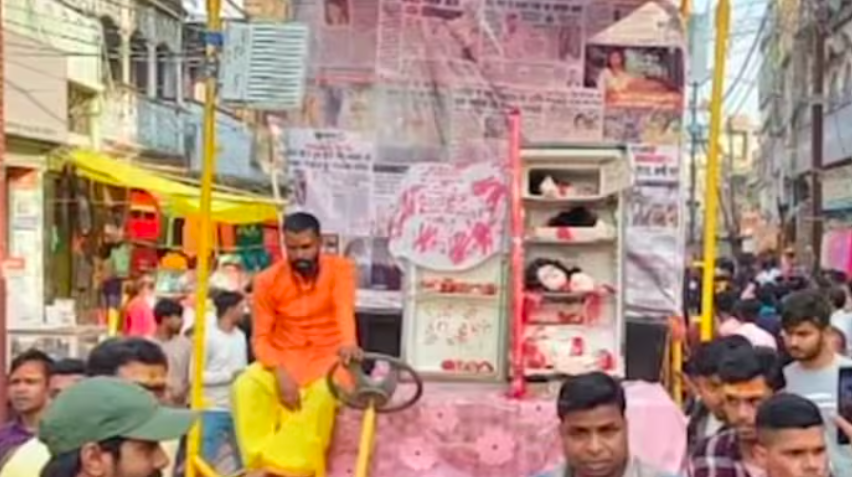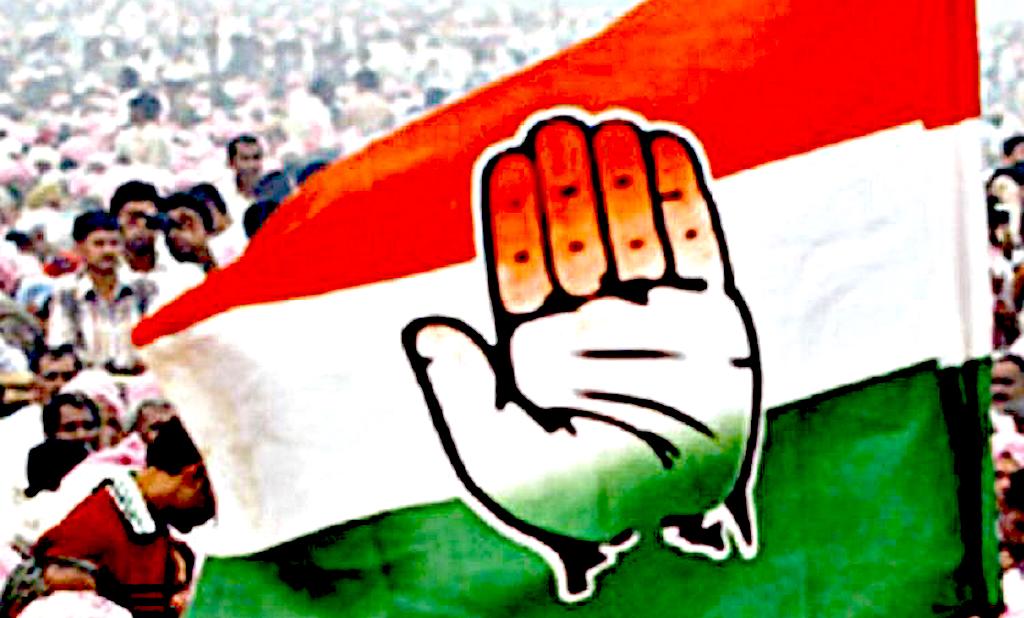If Hindutva terrorists were behind the blasts, why were innocent Muslims tortured and jailed?
Sadiq Naqvi
“The Indian police is a body of organised crime. You cannot re-train a force which is trained in criminal activities,” said Colin Gonsalves, leading human rights lawyer, in Delhi recently. Two heart-rending reports, The Anti-Nationals: Arbitrary Detention and Torture of Terrorism Suspects in India, released by the Human Rights Watch (HRW), and What it Means to be a Muslim in India, released by Act Now for Harmony and Democracy (Anhad), lays bare the sordid functioning of the Indian security apparatus – it is a regular practice to illegally detain suspects for weeks and use torture to extract confessions. The report is based on testimonies at a tribunal in Hyderabad organised by Anhad and Human Rights Law Network (HRLN). In some cases, like in the Hyderabad and Malegaon bomb blasts, even though the line of investigation has changed and Hindutva terror networks are being charged, the plight of innocent Muslims, especially youngsters languishing in jail, remains unchanged. Facing charges under draconian laws like Unlawful Activities (Prevention) Act (UAPA) and Maharashtra Control of Organised Crime Act (MCOCA), Muslim youth have been subjected to unspeakable brutalities, often for making them confess to crimes which, we are now told, were allegedly committed by Hindutva terrorists. “In India’s counter-terrorism laws, the term ‘terrorism’ has been vaguely defined. This enables the authorities to prosecute legitimate democratic protestors,” said Letta Tayler, researcher, HRW. Hardnews reproduces excerpts from these testimonies that not only show how the police has been communalised, but also how there is no justice for hundreds of innocents, especially Muslims, condemned, jailed and tortured.

According to IM Munshi, a lawyer for many of the Gujarat accused, suspects at the Gaekwad Haveli lock-up in Ahmedabad were forced to sit facing a wall, their hands cuffed and eyes covered, for 18 to 20 hours a day, and were often taken for interrogation late at night. A former suspect held in Ahmedabad gave a similar account, emphasising that suspects were made to wear dark masks and that beatings in the lock-up usually began after midnight. “The screaming lasted all night,” the former detainee said.
His interrogators usually came for him at 1 or 2am: “I was beaten with a wooden stick and a leather belt. I had to stand with my hands extended horizontally and if they came down, the police would beat me. My physical condition was such that I could not stand it for more than ten minutes. Whenever they interrogated me and they felt that the answer was improper, they beat me with the wooden stick or the leather belt or whatever they liked. I was told by the police department, ‘If you do not cooperate, we will take custody of all of your family. We will not allow your (relative) to study. We will not allow your (relative) to work.’ I was so scared I did not know what would happen and what to do or not to do. I had no hope of coming out.”
Much of the torture involved techniques that did not leave obvious marks. In Gujarat, according to some former suspects, relatives and lawyers, police used a method called the ‘T’, which involved pulling a suspect’s legs apart while beating the soles of his feet. A relative of one detainee said, “He told me, ‘I was beaten very badly with the T. They tied ropes on both feet and they stretched them to 180 degrees and, in that situation, I went totally unconscious. After 10 minutes, I regained consciousness, and the pain I felt was unbearable by any man.'”
Mohammad Arif, arrested in Lucknow in September 2008, retracted his statement of involvement in the bombings in UP and Gujarat, saying that the UP Anti-Terrorist Squad (ATS) used torture to make him confess: “I was punched, kicked, beaten very badly. In order to humiliate me and to break me down, the ATS made me stand for long hours and hung me upside down. During police custody, I was denied all basic amenities and forced to drink water from the toilet. Further on, I was subjected to electric shocks by the police officials and made to repeat what they were saying. The interrogators repeatedly used… name-calling, sexually profane abusive language, with me.”
Twenty-two-year-old suspect Saqib Nisar, an alleged Indian Mujahideen (IM) member, was detained at the Delhi Special Cell lock-up in October 2009. He is part of the Batla House group of youngsters arrested after the encounter, widely known as a fake encounter. According to Nisar’s father, Nisar Ahmed, his son was denied sleep until he memorised a police-concocted narrative of the Delhi bombings. The father said his son’s face was swathed in cloth when he was first allowed to visit him in October 2009: “I unwrapped my son’s face and saw the wounds… When I asked my son if he was tortured, he said, ‘They are hardly going to treat me with love. They want to build the case… They used to make us memorise a story of the police version of the case. We were not allowed to sleep until we could recite the police version.”
In Baroda, Gujarat – one of the flashpoints of violence in 2002 – police from a unit called the Special Operations Group allegedly took a group of young Muslim men to a secret interrogation centre at a farmhouse outside the city in August 2008 and beat them all night while questioning them about the Ahmedabad bombings and the Surat bombing attempts, according to two relatives of a member of the group. One relative said the victim later told him the abuse included electric shocks: “The torture continued from about midnight or one o’clock until morning… They were grabbed by the collars and their heads were bashed against the walls. They were given electric shocks and threatened that ‘either you confess to your crimes or we will harass your family members or ruin your business or kill you in an encounter – take you outside and kill you’.”
In August 2010, Mohammed Salman, a 17-year-old held in Delhi’s Tihar Jail in connection with bomb blasts in the capital, appeared in court with his head bandaged. Salman told the judge that two inmates had repeatedly slashed his face with a razor blade earlier that month. He said jail authorities “did nothing” to prevent the incident – international law prohibits the incarceration of children under 18 with adults – although he had twice requested transfer because he feared for his safety, and also took no action against the attackers. He also accused guards of laughing and saying: “He is a terrorist and this is what should happen to him, anyway.”
Salman received 22 stitches three days after the attack and was moved to another cell. The judge ordered an internal investigation that had not been made public as of this writing. (Salman was accused of being part of Delhi blasts; he was recently acquitted of all charges by a Delhi court. However, he is still in prison because of other charges of ‘other blasts’ later imposed on him, including by the Gujarat police. Human rights activists say, like the other Batla House youngsters, he is totally innocent, as proved by his acquittal in the Delhi blasts case.)
Mohammad Arif, who had been arrested by the UP ATS on September 24, 2008, remained in unacknowledged detention, unable to inform his relatives of his arrest or seek legal counsel, until police announced his arrest on September 29 and said he had confessed. In his complaint, Arif retracted his confession, saying police tortured and coerced him to make false statements against other individuals and to sign blank papers or written documents that he was not allowed to read.
Vinod Kumar Yadav, a Hindu human rights activist in UP, said he was taken by state police to a secret detention centre in Lucknow in October 2008 and repeatedly beaten for two days for participating in rallies against abuse of Muslim suspects in the bombings: “They were constantly saying… you are a Hindu and you are questioning the statements we make about Muslim boys and that is not good… You should not be seen with these Muslim people again, and if you don’t understand this, the future will be bleak for you… I was forced to lie flat, my hands and legs were wrapped many times with cable wire. They beat me with fists, with shoes, with bamboo sticks… At one point I lost consciousness and when I came to, they beat me again.”- From the Human Rights Watch Report
“My name is Ataur Rehman Sheikh, aged 61 from Mumbai. I am a retired machinist. I reside in Thane with my wife, two grand children and daughter-in-law… My house was raided on July 20, 2006, by the anti-terrorism squad at around 9.30pm… they frisked our house and took three computers unlawfully and whisked me away to an unknown destination. For several days I was kept in illegal custody. I was then formally shown to be arrested on July 27, 2006, and an FIR was lodged against me… Me, my wife, daughter and daughter-in-law were paraded before my arrested sons. We were abused and foulmouthed at by the police officers continuously. For all these days I was beaten up before my sons, similarly my sons were beaten up in front of me. The women of the family who were called up by the ATS daily were asked to drop their burqah before my arrested sons, and the sons were humiliated in front of the women folk by hurling abuses at them… The third day: I was again taken before my sons, who were handcuffed in the adjoining room. Here one officer… whom I can identify, beat me up and threatened me that the women in my family are outside and they will be stripped naked if I do not remove my clothes before my children and other police officers. Some other arrested accused were also brought there and I was stripped naked…”
“I am Maqdoomi Iqbal Ahmed, from Malegaon and father of accused no. 5, case no. 23/6, named Dr Farooq Anwar, in Malegaon bomb blasts. My son was a very busy practitioner… He was called at police station at midnight from hospital on November 6, 2006, in regard to Malegaon blasts… From November 6, 2006, to December 20, 2006, twice he was sent for narco test. During illegal detention he was tortured to become approver in Malegaon bomb blast case, which he refused to become. He simply said that he would always be with the truth. On December 20, 2006, he was for the first time presented before the court and blood was dripping from near the ears because his ears had been pulled so hard that they bled. He was also given electric shocks on his lips. Even now he feels pain on his lips due to those electric shocks. When I asked him about that, he told me in low voice in the court that the last day he was again taken for narco test but it could not be found out in the records. He was repeatedly hurt on the ears during the narco test, and Dr Malti, who was authorised to conduct the test, repeatedly pressurised him to repeat the police version of the confession…”
“I am Iqbal Begum from Hyderabad. My son Farhan alias Sayed Nadeemullah Hussaini was a motor mechanic… One day, a few people came to my son’s workshop and took some petrol without paying for it. My son was also beaten up by them, and they also filed an FIR against my son at the police station, alleging that my son had beaten up their child. In the middle of the night, at 3am, the police came to our house and took away my child… He was then presented in a police station and later put in remand at Chanchalguda… I got my son released on bail… We moved to Shaheen Nagar… At about 2am in the night, 8-10 plainclothed policemen came to my house in Shaheen Nagar and arrested all three of my sons… Two of my sons were released while one was held back… I was told that my son had been held back for interrogation and would be released soon after. He was released at about 5 or 6pm. However, afterwards, he was regularly followed to his work by a man in a car. One day, at about 10pm, while Sayed Nadeemullah was returning home after locking up his garage, he was abducted and taken away in the car. It has been two years and six months since that day and we have no information about him.” – From the Anhad/HRLN report
Sadiq can be reached at naqvi.sadiq@gmail.com. The article first published in the March issue of Hard News.









